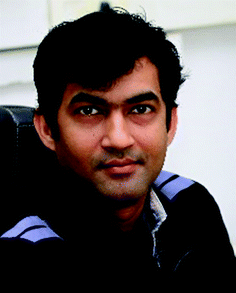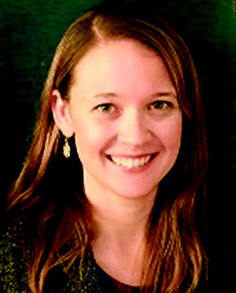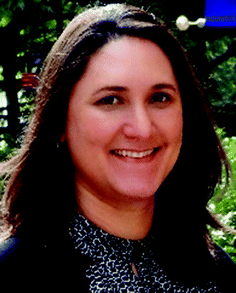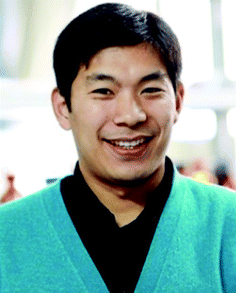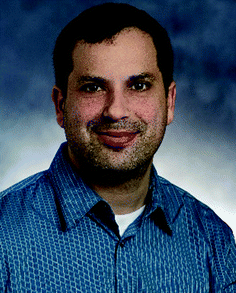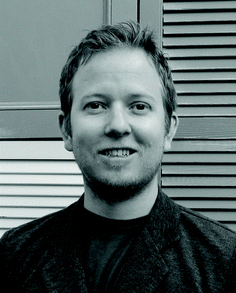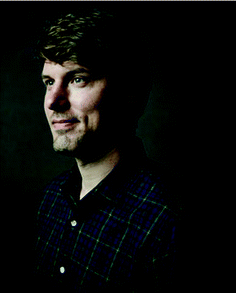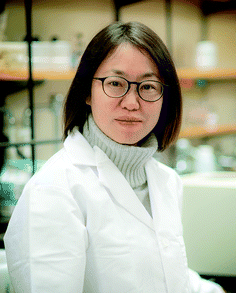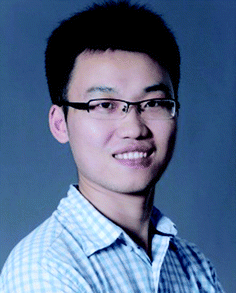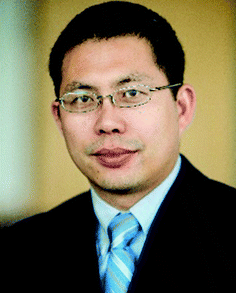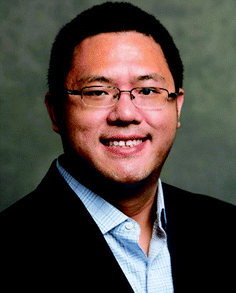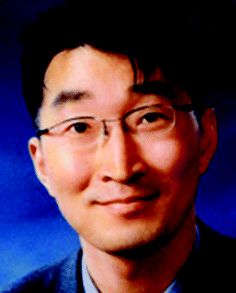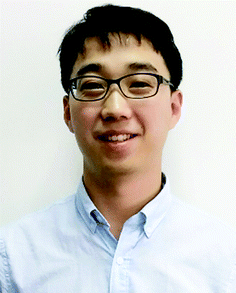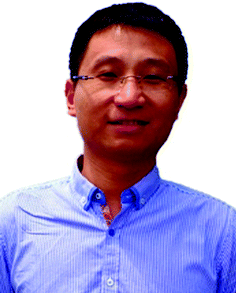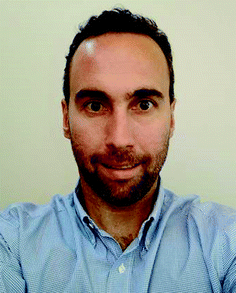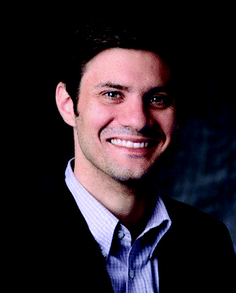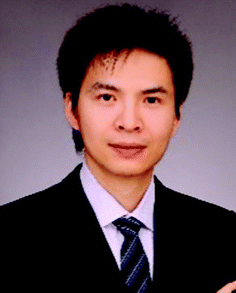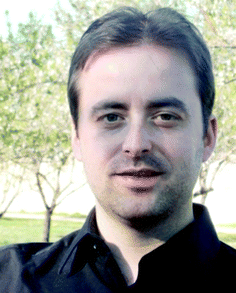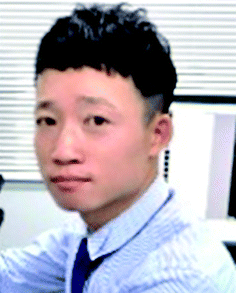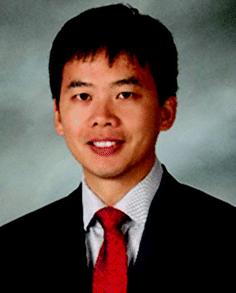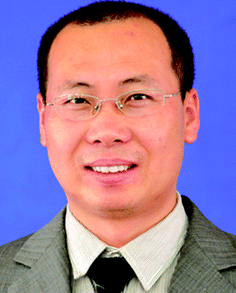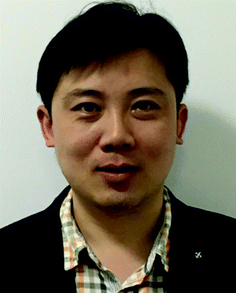DOI:
10.1039/C8TB90154F
(Profile)
J. Mater. Chem. B, 2018,
6, 7089-7095
Journal of Materials Chemistry B profiles: Contributors to the Emerging Investigators 2018 issue
Abstract
Journal of Materials Chemistry B is proud to present this themed issue highlighting 2018's rising stars of materials chemistry in the areas of biology and medicine.
Our 2018 Emerging Investigators themed issues gather some of the best research being conducted by scientists in the early stages of their independent career. Each contributor was recommended as carrying out work with the potential to influence future directions in materials chemistry. Congratulations to all of the researchers featured, we hope you enjoy reading this issue.
Dr Sarit S. Agasti is currently a faculty fellow at the Jawaharlal Nehru Centre for Advanced Scientific Research (JNCASR). He graduated from the University of Massachusetts Amherst with a PhD in Chemistry, under the guidance of Prof. Vincent M. Rotello. After graduation, he joined Harvard University as a postdoctoral fellow, where he worked initially with Prof. Ralph Weissleder and later with Prof. Peng Yin. His present research work focuses on the application of synthetic non-covalent recognition motifs (e.g., host–guest interaction, DNA–DNA interaction) to develop new tools for biosensing, imaging, and therapeutic delivery.
Dr Blair Brettmann received her BS in Chemical Engineering at the University of Texas at Austin and her PhD in Chemical Engineering at MIT. Her PhD focused on continuous manufacturing of pharmaceuticals. Following her PhD, Dr Brettmann was a Senior Research Engineer at Saint-Gobain, where she worked on polymer-based wet coatings and dispersions for commercial applications. Later, Dr Brettmann served as a postdoctoral researcher in the Institute for Molecular Engineering at the University of Chicago. Her lab at Georgia Tech designs and studies new processing and characterization technologies, focusing on linking molecular to micron scale phenomena to product performance, with a specific interest in applications for pharmaceutical product development.
Dr Daniela Buccella is currently an Associate Professor in the Department of Chemistry at New York University. She received a BS in Chemistry from Universidad Simón Bolívar in Caracas, Venezuela, and started research as an undergraduate in the Venezuelan Institute for Scientific Research under the supervision of Prof. Roberto Sánchez-Delgado. She completed her PhD in Chemistry at Columbia University (USA) where she worked with Prof. Ged Parkin in the areas of inorganic synthesis and catalysis. Following an NIH-sponsored postdoctoral fellowship in the lab of Prof. Stephen Lippard at the Massachusetts Institute of Technology, she returned to New York to start her independent career exploring the interface of inorganic chemistry and biology. Work in her research group focuses on the development of new molecular probes and imaging strategies for the study of cellular metal homeostasis. Since joining NYU, she has been awarded a Whitehead Fellowship for Junior Faculty in Biomedical and Biological Sciences, and an NSF CAREER award.
Dr Yiyun Cheng is a professor of Biomaterials in the School of Life Sciences at East China Normal University (ECNU). He received his PhD from the University of Science and Technology of China in 2008 and was a postdoctoral fellow at Washington University in St. Louis. He joined ECNU and started his independent research in 2010. Yiyun received the Distinguished Young Scholars award from the National Science Fund of China (NSFC) in 2017, the Young Chemist Award from the Chinese Chemical Society in 2015, and the Excellent Young Scholars award from NSFC in 2013. He has been an editorial board member of
Letters in Drug Design & Discovery and
Current Drug Discovery Technologies. Yiyun has published more than 100 manuscripts in peer-reviewed journals such as
Nat. Mater.,
Nat. Commun.,
J. Am. Chem. Soc.,
Angew. Chem. Int. Ed., and
Biomaterials. His research interests are focused on the development of smart polymers for cytosolic delivery of genes, proteins and peptides.
Dr Tzahi Cohen-Karni is an Assistant Professor in the departments of Biomedical Engineering and Materials Science and Engineering at Carnegie Mellon University, Pittsburgh, PA, USA. He received both his BSc degree in Materials Engineering and BA degree in Chemistry from the Technion Israel Institute of Technology (Haifa, Israel) in 2004. He received his MSc degree in Chemistry from the Weizmann Institute of Science (Rehovot, Israel) in 2006 and his PhD in Applied Physics from the School of Engineering and Applied Sciences, Harvard University (Cambridge MA, USA) in 2011. He was a Juvenile Diabetes Research Foundation (JDRF) Postdoctoral Fellow at the Massachusetts Institute of Technology and Boston Children's Hospital in the labs of Robert Langer and Daniel S. Kohane from 2011 to 2013. In 2014, he was awarded the Charles E. Kaufman Foundation Young Investigator Research Award. In 2016, Dr Cohen-Karni was awarded the NSF CAREER Award, and in 2017, he was awarded the Cellular and Molecular Bioengineering Rising Star Award, the Office of Naval Research Young Investigator Award and the George Tallman Ladd Research Award. In 2018, Dr Cohen-Karni was awarded the CMBE Young Innovator Award.
Dr Luke Connal is a Senior Lecturer at the Research School of Chemistry at the Australian National University (ANU), where he is an ANU Futures Fellow. His research program is in the design of advanced polymeric materials for applied systems. He has been recognised by numerous awards such as the ACS Chemical and Engineering News Talented 12 and he is currently an academic editor at
PLoS One and on the editorial board of
Molecular Systems Design and Engineering.
Dr James Dahlman is an Assistant Professor in the Georgia Tech Department of Biomedical Engineering. His lab works at the interface of drug delivery, nanotechnology, genomics, and gene editing. James has designed nanoparticles that deliver RNA to blood vessels in the heart and lung; these nanoparticles have been validated by labs across the US. James uses molecular biology to rationally design the genetic drugs he delivers. He has designed ‘dead’ guide RNAs to turn on genes using active Cas9. Similarly, his lab designed a nanoparticle DNA barcoding system to measure how >200 nanoparticles target cells at once
in vivo. James’ barcoding work led to his placement on the TR35 list. His drug delivery work has been published in
Nature Nano,
Nature Biotech,
Nature Cell Bio,
Science Trans Med,
Cell,
PNAS,
ACS Nano,
JACS, and other leading journals. He has given >60 invited presentations on drug delivery, gene editing, and DNA barcoding.
Dr He Dong obtained her PhD degree in Organic Chemistry at Rice University in 2008. After postdoc work at Emory University and the University of California at Berkeley, she started her independent career in the Department of Chemistry and Biomolecular Science at Clarkson University in 2012. She joined the Department of Chemistry and Biochemistry at the University of Texas at Arlington in 2018. Her research is focused on biomimetic design and supramolecular assembly of soft matter nanomaterials for anticancer and antimicrobial therapy development. She received an NSF Early Career Award for her work on the design and self-assembly of antimicrobial peptides.
Dr Emily Rose Draper received her PhD in Chemistry from the University of Liverpool, UK, in December 2015 focusing on photoresponsive gelators. She then carried out a post-doc at the University of Liverpool until September 2016 working on multi-component gelator systems. She then moved to the University of Glasgow, UK, where she continued working on multi-component systems for use in photovoltaics. Emily received an Early Career Fellowship from the Leverhulme Trust and a Lord Kelvin Adam Smith leadership fellowship from the University of Glasgow in September 2017. Her group is currently working on hydrogels for ophthalmic viscosurgical devices, aligned supramolecular thin film materials for use in flexible electronic devices and chromic materials.
Dr Jinlin He is currently an Associate Professor in the College of Chemistry, Chemical Engineering and Materials Science at Soochow University (Suzhou, P. R. China). He graduated with a bachelor’s degree in Chemical Engineering (2006) and earned his doctorate degree in Polymer Chemistry and Physics (2012) at Soochow University. From August 2010 to November 2011, he received a fellowship from the China Scholarship Council and studied in the research group of Professor Stephen Z. D. Cheng at the University of Akron. His research focuses on the design and engineering of topological polymers and smart biomedical materials, which have been published in renowned peer-reviewed journals.
Dr Yi Hong is an Assistant Professor in the Bioengineering Department at the University of Texas at Arlington (UTA). He achieved his PhD in Material Science and Engineering in 2005 at Zhejiang University. Dr Hong worked as a postdoc, and later as a Research Assistant Professor, at the McGowan Institute for Regenerative Medicine at the University of Pittsburgh (PITT) from 2006 to 2012. After joining UTA in 2012, his research has focused on functional and bioactive biodegradable soft materials development and translational research for tissue repair and regeneration, 3D bioprinting, controlled release and bio-imaging applications with an emphasis on cardiovascular disease treatment. He has published over 60 peer-reviewed papers in the field of biomaterials, and has applied/issued 11 patents as well as over 100 conference abstracts. He received the NSF CAREER award in 2016, and was elected as a Fellow of the American Heart Association in 2017. Dr Hong received the UTA COE Outstanding Early Career Faculty Award in 2018.
Dr Xiaocheng Jiang is an Assistant Professor in the Department of Biomedical Engineering at Tufts University. He received his PhD in Physical Chemistry (2011) from Harvard University with Professor Charles Lieber, with a focus on the design and application of nanoscale materials and nanoelectronic devices. Prior to joining Tufts, he was an American Cancer Society postdoctoral fellow at Harvard Medical School and Massachusetts General Hospital, where he worked with Prof. Mehmet Toner on functional microfluidics for early cancer diagnostics. His current research lies broadly at the interface of materials science and biomedical applications, with specific interests in bio-inspired/bio-integrable electronics. He is the recipient of the NSF CAREER award (2017) and the AFOSR Young Investigator award (2018).
Dr Deok-Ho Kim is currently an Associate Professor in the Department of Bioengineering at the University of Washington. He received his PhD in Biomedical Engineering from Johns Hopkins University. His current research interests cover biomedical materials, tissue engineering, and cell mechanobiology. He has published over 150 peer reviewed journal articles; referenced conference proceedings, book chapters and patent applications; and given over 100 national and international invited lectures. Among the awards he has received are the Samsung Humantech Thesis Award, the Harold M. Weintraub Award in Biological Sciences, the American Heart Association National Scientist Development Award, and the BMES-CMBE Young Innovator Award.
Dr Xiaomin Li received his PhD in 2014 from Fudan University under the supervision of Prof. Dongyuan Zhao followed by 2 years postdoctoral experience in the same group. He joined the Chemistry Department of Fudan University as an associate professor in 2016. His current research interests include the development of multifunctional nanostructured materials and nanotechnology for applications in bioimaging, nanomedicine, analysis and drug delivery.
Dr Mingxian Liu received his BSc (2004) from Qingdao University of Science & Technology, and his PhD (2010) from the South China University of Technology under the supervision of Prof. Demin Jia and Prof. Baochun Guo, focusing on the preparation and characterization of polymer nanocomposites. After that, he worked as an assistant professor in the Department of Materials Science and Engineering at Jinan University and became a professor of biomaterials there in 2016. His main research interests are the structure and property relationships of one-dimensional nanomaterials (including halloysite nanotubes and chitin nanocrystals) for biomedical applications in the field of tissue engineering, drug delivery, biosensors, and so on. He has more than 60 publications in peer-reviewed international journals and an H-index of 27.
Dr João Paulo Figueiró Longo finished his PhD at the University of Brasília in 2010. Since May 2012, he has been an adjunctive professor at the University of Brasília. His present research is focused on the development of nano-formulations for biomedical applications. João Paulo is the coordinator of the postgraduate program in Nanoscience and Nanobiotechnology (master’s and PhD degrees). In 2018, he reached 50 international scientific publications, with topics related mainly to nanomedicine, photodynamic therapy, drug delivery, and
in vivo imaging.
Dr Jonathan Franklin Lovell is an Associate Professor of Biomedical Engineering at the State University of New York at Buffalo. He received an undergraduate degree from the University of Waterloo in Systems Design Engineering and a master's degree from McMaster University in Biochemistry prior to obtaining a PhD degree from the University of Toronto from the Institute of Biomaterials and Biomedical Engineering in 2012. Dr Lovell's research has been recognized with distinctions including the National Institutes of Health Early Independence Award, the Biomedical Engineering Society Rita Schaffer Young Investigator Award, the National Science Foundation CAREER Award and the Society of Porphyrins and Phthalocyanines Young Investigator Award.
Dr Ed Palermo is from Bay Shore, NY. He began doing research as a high school student with Miriam Rafailovich at SUNY Stony Brook (Stony Brook, NY) in the Department of Materials Science and Engineering. After completing a bachelor's degree in Mechanical Engineering at Cornell University (Ithaca, NY) in 2006, he moved to the University of Michigan (Ann Arbor, MI) and earned a PhD in Macromolecular Science and Engineering, under the mentorship of Kenichi Kuroda, in 2011. He was an NSF/JSPS visiting scholar at Nagoya University with Prof. Masami Kamigaito in 2010. Following a postdoc position with Anne J. McNeil in Chemistry at the University of Michigan, Ed joined the faculty at RPI in 2014. He is married to Gabrielle C. Todd, PhD in Chemical Biology from UMich (currently a researcher at SUNY Albany). They have a daughter, Sophia Katharina Palermo, who is ∼2 years old and already loves polymer science.
Dr Kun Qian is Professor of Biomedical Engineering at Shanghai Jiao Tong University. His research interests and efforts are focused on the development and commercialization of ultra-sensitive and high-throughput biotechnology and bio-analytical methods. He is a pioneer and entrepreneur in real case biomedical applications through the design, synthesis, and engineering of high performance materials and devices.
Dr Francesca Santoro received bachelor's and master's degrees in Biomedical Engineering at the ‘Federico II’ University of Naples (Italy) with specialization in biomaterials. She received her PhD in 2014 in Electrical Engineering and Information Technology in a joint partnership between RWTH Aachen and Forschungszentrum Juelich (Germany) with a scholarship from the International Helmholtz Research School in Biophysics and Soft Matter (IHRS BioSoft). In October 2014, she joined the Cui Lab (Chemistry) at Stanford University (USA) and received a research fellowship in 2016 from the Heart Rhythm Society. She joined IIT in July 2017 and leads the ‘Tissue Electronics’ lab at CABHC in Naples as a tenure-track principal investigator. She has been recently nominated in the Under 35 Young Innovators list by the MIT Technology Review Italia for 2018.
Dr Sébastien Ulrich carried out his PhD under the guidance of Prof. Jean-Marie Lehn at ISIS, Strasbourg, France, developing molecular switches for controlling dynamic combinatorial libraries. He subsequently joined the groups of Prof. Harry L. Anderson (Oxford University, UK) as an EPSRC fellow and Prof. Eric T. Kool (Stanford University, CA, USA) as a Fulbright fellow. In 2011 he was awarded an ANR starting grant and joined the group of Prof. Pascal Dumy, first in Grenoble and then at IBMM in Montpellier, France, where he was promoted to a permanent CNRS research position. In 2014 he was named a Junior Distinguished Member of the French Chemical Society (SCF) and was awarded the CNRS Bronze Medal in 2017. His current research interests in supramolecular bioorganic chemistry focus on bioactive dynamic self-assemblies and multivalent recognition systems for biological applications such as gene delivery.
Dr Wei Wei received his PhD at the State Key Laboratory of Biochemical Engineering at the Institute of Process Engineering of the Chinese Academy of Sciences, China, in 2011 and stayed there to work as an assistant professor. In 2013, he was promoted by breaking conventions to be associate professor because of his outstanding achievements and then became a full professor in 2016. Prof. Wei's current research focuses on the applications of novel micro- and nano-scale materials in anti-tumor therapy.
Dr Xiaohu Xia has been an Assistant Professor at the University of Central Florida (UCF) since May 2018. He is a recipient of the U.S. NSF CAREER Award (class of 2017). Prior to his appointment at UCF, he worked at Michigan Technological University as an Assistant Professor from 2014–2018. He received his BS degree in Biotechnology (2006) and PhD degree in Biochemistry and Molecular Biology (2011) from Xiamen University, China. He worked at Washington University in St. Louis as a visiting graduate student from 2009 to 2011 and at Georgia Tech as a Postdoctoral Fellow from 2012 to 2014. His research interests include the design and synthesis of novel nanostructures and the exploration of their applications in biomedicine and catalysis.
Dr Xuehai Yan is currently a professor at the Institute of Process Engineering (IPE), Chinese Academy of Sciences (CAS). He is vice director at the State Key Laboratory of Biochemical Engineering and the Center of Mesoscience, IPE, CAS. He obtained his PhD in chemistry at CAS in 2008, and he carried out his post-doctoral research as an Alexander von Humboldt fellow at the Max Planck Institute of Colloids and Interfaces in Germany from 2008 to 2013. He is an associate editor of
Colloids & Surfaces A. His research interests are mainly focused on chemistry and materials for peptide self-assembly, mesoscale mechanisms, biomimetic fabrication and functional architectures for nanomedicine and bioenergy.
Dr Yuanjin Zhao is a full professor in the School of Biological Science and Medical Engineering at Southeast University, China. He received his bachelor’s degree in Clinical Medicine (2006) and PhD degree in Biomedical Engineering (2011) from Southeast University. From 2009 to 2010, he worked as a research scholar in Prof. David A. Weitz's group in the School of Engineering and Applied Sciences at Harvard University. His scientific interests are focused on the microfluidic generation of biomaterials, bioinspired photonic nanomaterials, and organs-on-chips. Yuanjin Zhao has published more than 110 research papers in international journals and applied more than 70 related patents. His recent awards include the Young Chemist Award of the Chinese Chemical Society.
|
| This journal is © The Royal Society of Chemistry 2018 |
Click here to see how this site uses Cookies. View our privacy policy here. 
